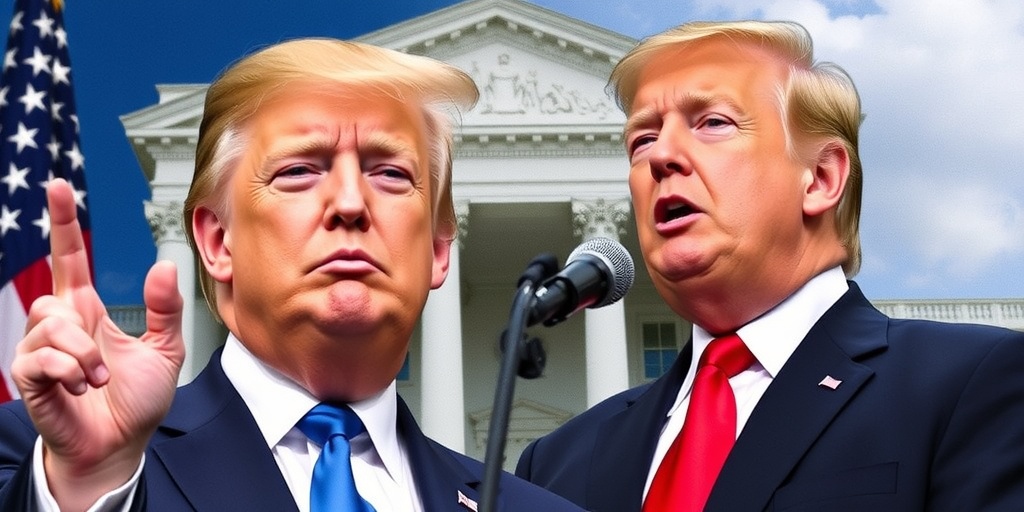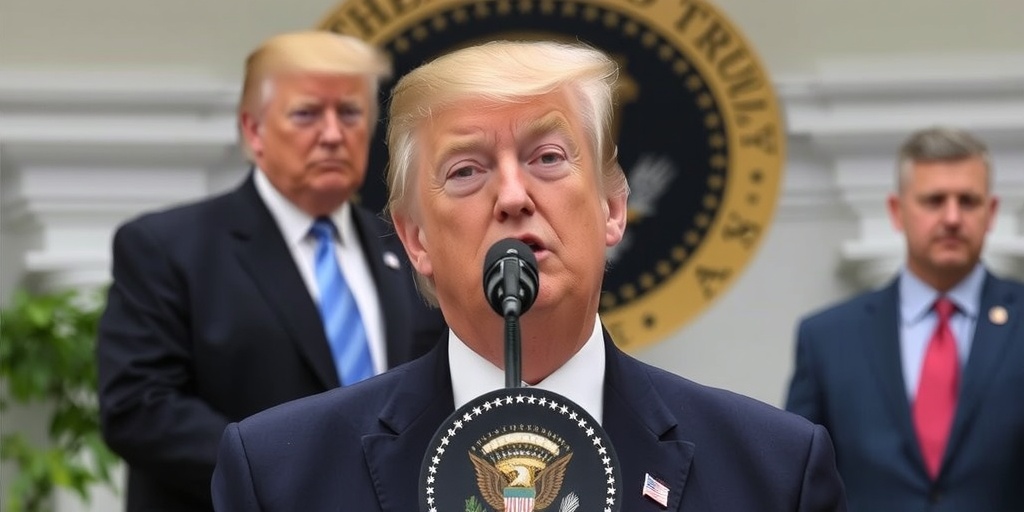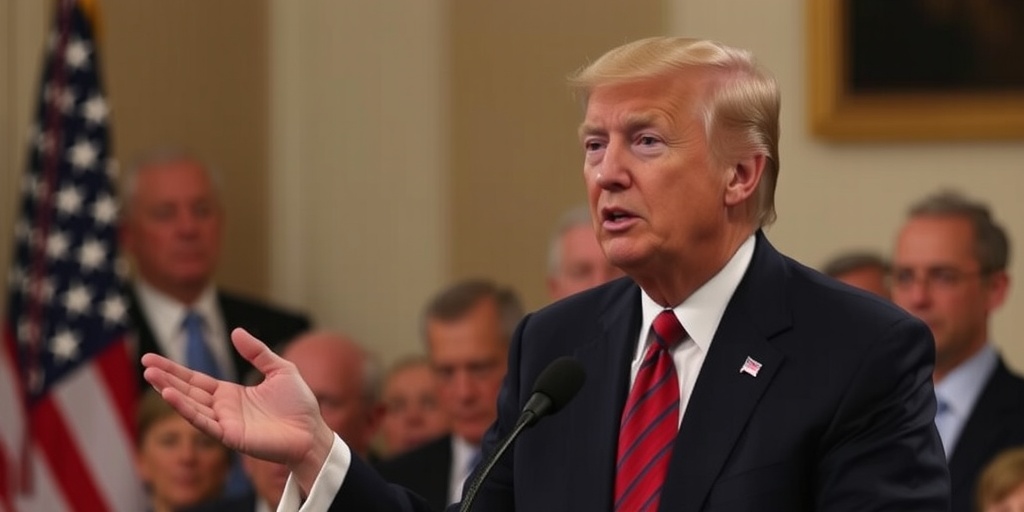Now Reading: Global Markets Slide Amid Trade War Concerns
-
01
Global Markets Slide Amid Trade War Concerns
Global Markets Slide Amid Trade War Concerns

Global Market Turmoil: Tariffs Spark Concerns of Trade War
On Tuesday, global stock markets suffered significant downturns, with shares of European car manufacturers particularly hard hit, following the implementation of President Trump’s sweeping tariffs targeting Canada, Mexico, and China. The tariffs, designed to bolster American industries, have raised immediate fears among investors regarding the potential onset of a global trade war, as both Canada and China swiftly responded with retaliatory measures of their own.
As trading began, European stocks fell sharply, reflecting investors’ growing anxieties about the future of international trade relations. The Euro Stoxx 50, an index that tracks the largest companies within the eurozone, plunged by as much as 2.4 percent, marking its most substantial decline in nearly four months. Germany’s DAX index, a benchmark for the German stock market, experienced a similar fate, dropping by roughly 2.6 percent. This drastic fall comes on the heels of a record high reached just a day prior, fueled in part by optimistic projections surrounding increased military spending in Europe.
The automotive sector, particularly in Germany, was disproportionately affected by the tariffs due to the extensive operations many carmakers have in Mexico. With assembly plants in the country producing vehicles primarily for the American market, the implications of increased duties on imports loom large. Leading brands saw drastic declines—Volkswagen shares dipped nearly 4 percent, while BMW shares plummeted more than 5 percent. Daimler Truck, known for its Freightliner and Thomas Built Buses brands, reported a staggering decrease of over 6 percent in its stock price. Furthermore, Continental, an auto parts manufacturer with significant production in Mexico, saw its shares fall by 9 percent.
The turbulence in the stock market was not confined to Europe alone; futures for U.S. markets indicated a slightly negative opening, following a notable 1.8 percent drop in the S&P 500 on Monday—the worst it had faced in 2025 so far. Investor sentiment reflected a cautious outlook as the specter of an escalating trade conflict loomed larger.
In the currency markets, the U.S. dollar index, which measures the dollar against a basket of major currencies, witnessed a decline of 0.7 percent. Conversely, the Canadian dollar gained almost 0.5 percent, rebounding from a one-month low it had reached against the dollar previously. On the other hand, the Mexican peso continued to weaken for the fourth consecutive day, reflecting growing economic strain from the ongoing tariff skirmishes.
Adding to the broader market instability, oil prices experienced a downturn after OPEC and its allied nations announced plans to increase production levels. Brent crude, the international benchmark, experienced a fall of 1.6 percent, trading around $70.47 per barrel. This drop in oil prices potentially signals further economic concerns, as investors reckon with the interconnectedness of trade policies and commodity markets.
Meanwhile, the yield on the 10-year U.S. Treasury bond—a critical indicator that influences borrowing costs across various financial products, including mortgages and personal loans—has continued its recent downward trend. This slip further illustrates the apprehension in financial markets regarding the economic outlook in the U.S., with many investors seeking safety in bond investments amidst stock market volatility.
Despite the tumultuous atmosphere on trading floors, certain sectors remained resilient. European defense companies, for instance, experienced gains as the European Commission put forth proposals for increased military expenditure. This initiative includes substantial financial support in the form of 150 billion euros, equivalent to approximately $158 billion, earmarked for defense investments across E.U. member states. Notably, shares of Rheinmetall, a prominent German arms manufacturer, rose by 1 percent, adding to a remarkable 14 percent increase from the previous day. Likewise, shares in BAE Systems, a British defense contractor, climbed 1 percent after a gain of 15 percent on Monday, highlighting the divergence within the market amidst overarching pessimism.
As the day progressed, analysts continued to monitor the evolving situation, emphasizing that the consequences of the tariffs and subsequent retaliatory actions could have far-reaching implications for the global economy. The interplay between trade policies, stock market fluctuations, and currency valuations will be pivotal in shaping the economic landscape in the months to come, underscoring the interconnected nature of today’s globalized market.
Stay Informed With the Latest & Most Important News
Previous Post
Next Post
-
 01New technology breakthrough has everyone talking right now
01New technology breakthrough has everyone talking right now -
 02Unbelievable life hack everyone needs to try today
02Unbelievable life hack everyone needs to try today -
 03Fascinating discovery found buried deep beneath the ocean
03Fascinating discovery found buried deep beneath the ocean -
 04Man invents genius device that solves everyday problems
04Man invents genius device that solves everyday problems -
 05Shocking discovery that changes what we know forever
05Shocking discovery that changes what we know forever -
 06Internet goes wild over celebrity’s unexpected fashion choice
06Internet goes wild over celebrity’s unexpected fashion choice -
 07Rare animal sighting stuns scientists and wildlife lovers
07Rare animal sighting stuns scientists and wildlife lovers




















